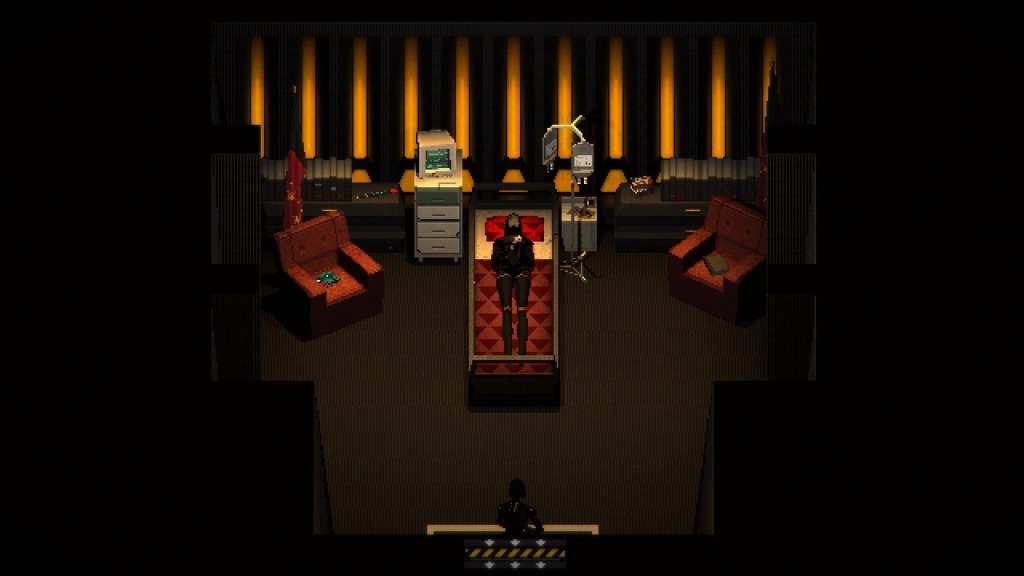SIGNALIS
Rose-engine Games
2021
All Platforms
In Signalis, you play as Elster, a Replika android searching for her Gestalt coworker Ariane to fulfill a promise made during their working relationship. Elster arrives at a largely derelict mining facility on the planet Rotfront, where she quickly discovers that a horrific illness is corrupting and consuming the surviving Replika workers. Intermittent visions of half-remembered horrors haunt the Replika whose consciousness remains – however, Elster remains stalwart, sworn to her purpose.
These themes play out with a presentation that evokes Neon Genesis Evangelion, Shaft’s anime adaptation of Monogatari, Yoko Taro’s NieR, John Carpenter’s Apocalypse Trilogy (and a little bit of The Fog, too), and Silent Hill. There are occasionally pulsing mounds of flesh. Real world art such as Arnold Bocklin’s Isle of the Dead, or literature like Robert William Chambers’ The King in Yellow and H.P. Lovecraft’s The Festival, is thoughtfully inserted into surrealistic montage. There’s a brief high school AU where one character tries to go to the library with their friend.
And yet the dominant influence on this game is pretty undeniable – this is, at its heart, a classic Resident Evil game, with tank controls swapped for pretty strong third person avatar play. The combat, puzzles, and exploration in this game are simply top notch. The puzzles never become too obscure to solve but require a little clever lateral thinking. There’s always the tension of wanting one more inventory slot as you realize you need to carry Owl and Hummingbird keys AND some health toward an objective. The guns get just the right amount of ammo to cycle through them as you play, and your weaker guns never “stop doing enough damage,” making it exciting to plan your loadout as you head into unknown territory. I found it hugely fun throughout, a great modernization of a classic genre, which I honestly had not expected from a horror game with this quality of art and narrative.
What elevates Signalis, though, is the discovery of its plot, its horrors, its unspoken sadness. To borrow a comparison made in the pretty excellent piece by Elijah Gonzales in Paste, “I can’t help but compare it against something like the influential psychological horror film Jacob’s Ladder, which is excellent until its dunderheaded final minute provides an overly straightforward answer that undermines the complicated web of ideas that came before. By contrast, Signalis manages the difficult task of using multiple conclusions to amplify its main ideas while leaving ample room for interpretation, its unanswered questions and evocative answers buzzing in my mind long after the credits rolled.”
Because I like some game critics who love horror games, I end up seeing a lot of horror game Let’s Plays. It’s a genre that occasionally seems stale and like everything has been done. Signalis points toward a way forward into the new. This is a very considerate game that pokes at systemic cruelty, personal joy, and how terror can distort our vision of reality. Using cinematic techniques and misdirection, Signalis is capable of making the player second-guess what they’re seeing, and not in the silly Eternal Darkness “memory card corrupted” way. What elevates Signalis is the respect with which it treats its audience and the intelligence of its narrative.
